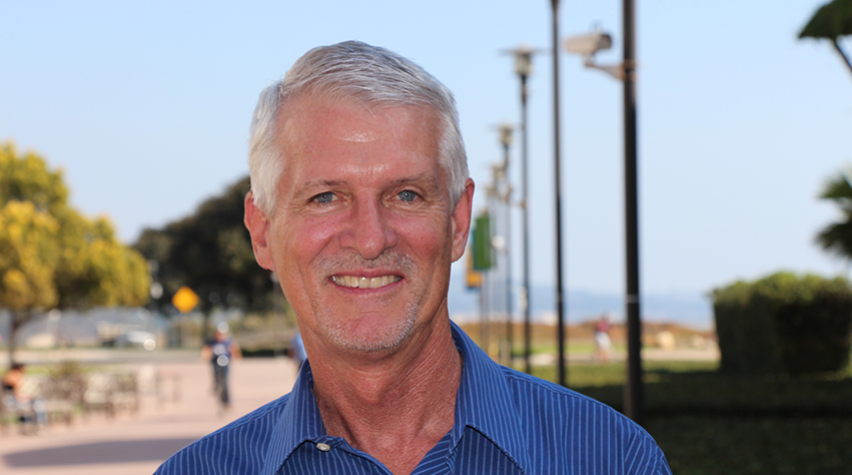
ChEnected is introducing readers to the recipients of AIChE’s 2024 Institute and Board of Directors’ Awards. These high honorees are nominated by the chemical engineering community and voted upon by the members of AIChE’s Awards Committee.
AIChE’s Warren K. Lewis Award is named for one of the founders of the chemical engineering discipline. The prize is sponsored by ExxonMobil Research and Engineering Company, and recognizes distinguished and continuing contributions to chemical engineering education.
The 2024 Warren K. Lewis Award is being presented to James B. Rawlings, the Mellichamp Process Control Chair in the Department of Chemical Engineering at the University of California, Santa Barbara. Dr. Rawlings is being honored “for groundbreaking research in the theory and application of model predictive control, and for leadership in education through his landmark textbooks and industrial short courses.”
Dr. Walton and the other Institute and Board of Directors’ Award honorees will receive their prizes at the 2024 AIChE Annual Meeting, October 27–31 in San Diego, California.
James Rawlings and predictive control
A chemical engineering alumnus of the University of Texas at Austin (UT) and the University of Wisconsin (UW), where he earned his BS and PhD, respectively, Rawlings spent a year at the University of Stuttgart as a NATO postdoctoral fellow before returning to serve as a faculty member at both UT and UW. He joined the University of California, Santa Barbara in 2018, where he co-directs the Texas-Wisconsin-California Control Consortium. His research has focused on chemical process modeling, monitoring and control, nonlinear model predictive control, moving horizon state estimation, and molecular-scale chemical reaction engineering.
Forming the basis of his Lewis Award recognition are Rawlings’s influential writings and textbooks that explore these areas, and, in particular, predictive control.
As model predictive control emerged as the process industries’ advanced control method of choice during the past 30 years, Dr. Rawlings’s research and teaching activities have delivered some of that field’s central theoretical and algorithmic innovations. As of 2023, Rawlings’s publications had been cited more than 47,000 times.
Rawlings co-authored (with John Ekerdt) the textbook “Chemical Reactor Analysis and Design Fundamentals” in 2002. This textbook is used in dozens of chemical engineering departments for graduate and undergraduate instruction.
In 2009, he completed a research monograph, “Model Predictive Control: Theory, Computation, and Design” (with Mayne and Diehl). That text has been adopted by two dozen universities for engineering and graduate-level courses.
Another graduate-level chemical engineering analysis text, “Modeling and Analysis Principles for Chemical and Biological Engineers” (written with Michael Graham), was published in 2013.
All of these book have recently received second editions.
Rawlings’s teaching of innovative control approaches has extended beyond university-level instruction. Beginning in the 1990s, Rawlings and his colleagues created short courses that presented improved control techniques and principles to companies such as ExxonMobil, Eastman Chemical, and Johnson Controls. Eastman and Johnson would incorporate Rawlings’s research results as the theoretical basis for their standard model predictive control designs. Also, Aspen Technology, the dominant international vendor of computer control systems for the process industries, would create a new generation of control algorithms based on Rawlings’s papers, research results, and consulting.
This fall, ChEnected is presenting profiles of all the 2024 Institute and Board of Directors’ Award recipients. Visit ChEnected regularly to meet the honorees.



Comments
Total joke! I was with Exxon for 15 years and I know the internal politics and the players likes of Chief Engineer Don Bartusiak. I was lead in implementing Plant-wide Controls for two Cracker Plant in Baytown and worked on 5 other Crackers within Exxon. I saw no trace of Jim Rawlings Controls. His Polymer Controls is complete failure as pointed out in Linkedin Post by me on Dr. Rahul Bindlish and his Youtube Video claiming 200 hs of deadtime and 15 days of Steady-State Time. These Awards have become a display of Political Prowess and rotten players within.
If C3-Splitter Control at Baytown which was declared as Non-Linear Control problem (possibly but not certain endorsed by JR) Exxon Chief Engineer Don Bartusiak endorsed assigning Ward Morrison Sr. Staff Engr. for 5 years studying its dynamics. Once Chief Engineer in Exxon says North pointing at South, it becomes North within XOM. It was successfully commissioned by me and AMT team members in 2004 using linear DMC with Composition modelled as P-Imbalanced ramp. I later wrote detailed Control-document on the same as a suggestion by my Project Manager Layi Oyeleye. To my surprise (not really) my name completely erased and authorship assigned to Ward Morrison with Exxon Mobil. This is how Industrial Politics works!
If C3-Splitter Control at Baytown which was declared as Non-Linear Control problem (possibly but not certain endorsed by JR) Exxon Chief Engineer Don Bartusiak endorsed assigning Ward Morrison Sr. Staff Engr. for 5 years studying its dynamics. Once Chief Engineer in Exxon says North pointing at South, it becomes North within XOM. It was successfully commissioned by me and AMT team members in 2004 using linear DMC with Composition modelled as P-Imbalanced ramp. I later wrote detailed Control-document on the same as a suggestion by my Project Manager Layi Oyeleye. To my surprise (not really) my name completely erased and authorship assigned to Ward Morrison with Exxon Mobil. This is how Industrial Politics works!